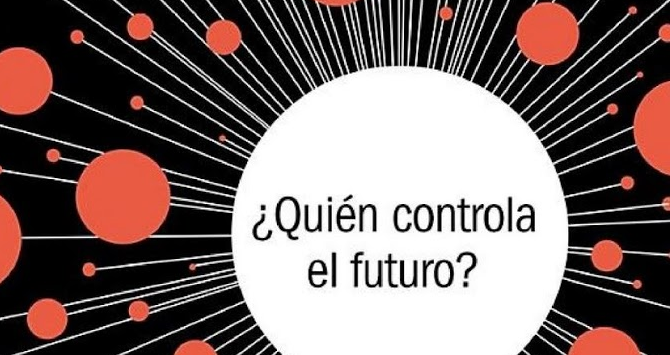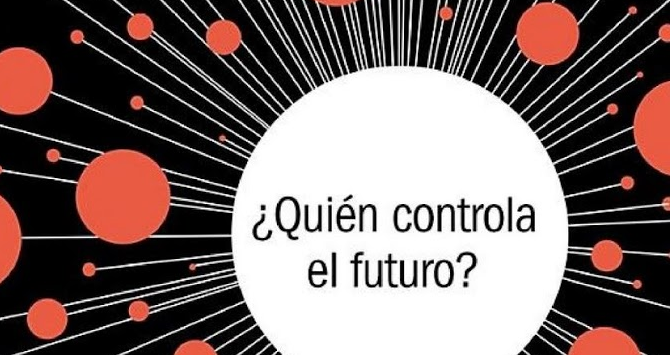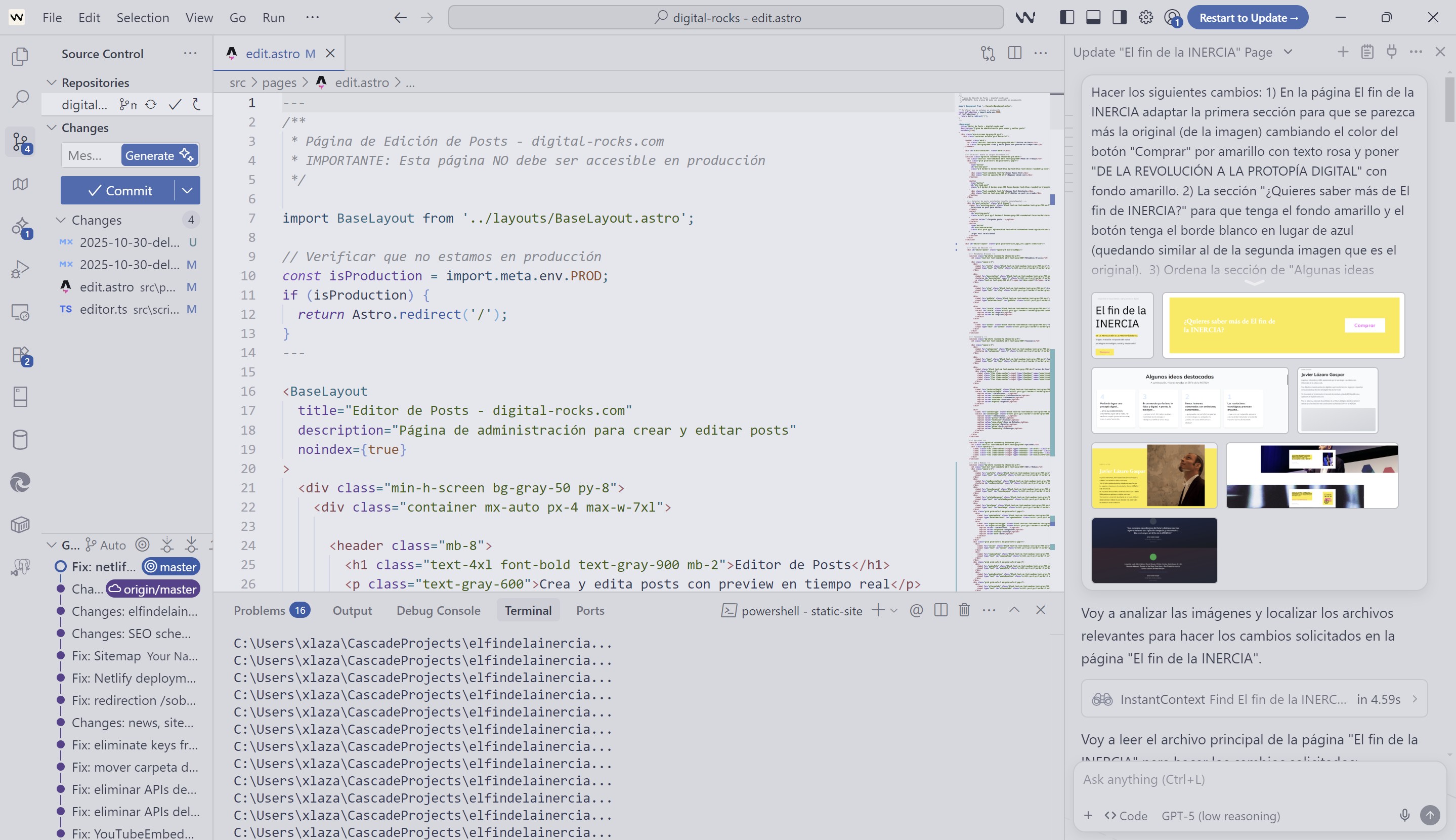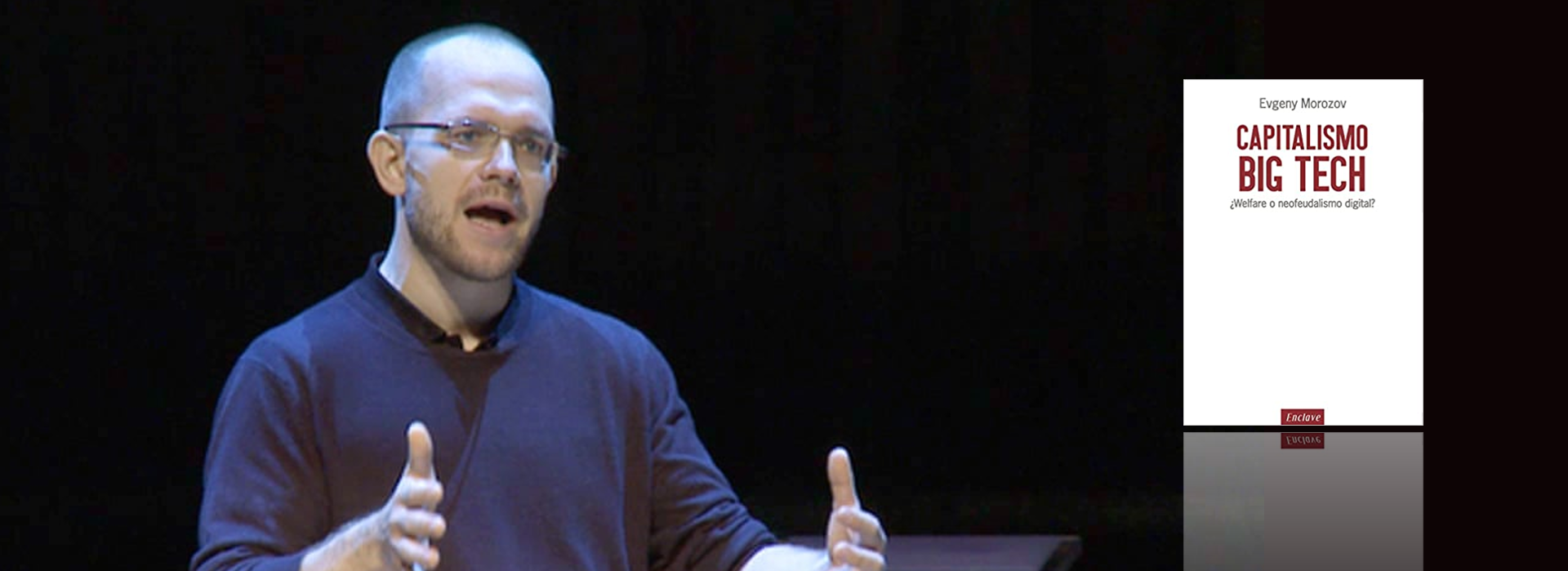Who Controls the Future? (by Jaron Lanier)

There are books that come to you through a friend, something you read, or a display window. The case of Who Owns the Future? by Jaron Lanier is particular. While hanging out in a hospital waiting room, my wife came across a tweet from Ana Patricia Botín recommending it.
We found it curious that she was reading a book by Lanier. As a technologist, I had heard of him but had not read anything, and the recommendation surprised me.
My wife bought it with the intention of reading it; a year later, I read it, and six months later, I am writing this post. I know, there are faster ones.
It is an essay on the evolution of technology and digital trends, focusing on data, artificial intelligence, and their effects on society and individuals.
It is not a historical view, although it contains many references; nor is it a critique, although it does not spare any criticism (from Silicon Valley companies like Facebook or Google to the major gurus of the moment like Singularity University).
Instead, Lanier explains his experience, his vision, and proposes a solution to ensure that technology becomes a tool for future economic expansion rather than contraction.
Jaron Lanier, author of Who Owns the Future?
Jaron Lanier has been one of the gurus in the world of Virtual Reality and was named by Time in 2011 as one of the 100 most influential people in the world.

He is a computer scientist, musician, graphic artist, and writer, with “Who Owns the Future?” being his second essay after the success of “You Are Not a Gadget” (2011). At the time of the publication of this work, Lanier was working at Microsoft Research and was also a professor at Stanford.
To get to know him, you can watch a 20-minute interview where Lanier himself describes his philosophy and some initial insights into what he calls his humanistic information economy. Apologies for the sensational title of the video; I believe the content surpasses the sensationalism of the title.
WHO OWNS THE FUTURE?
In Who Owns the Future?, Lanier talks about siren servers that, to some extent, he has helped create. Servers that have managed to control important facets of people’s information in a world where data is becoming increasingly valuable.
To put it in context, it is worth recalling the The Economist issue in 2017 titled “The world’s most valuable resource is no longer oil, but data” or my post “Artificial Intelligence is the new electricity”. Lanier reflects on the implications of this new oil being controlled by a few.
He defines siren servers as networked servers characterized by their narcissism, risk aversion, and extreme asymmetry of information. Winners of a competition in which the winner takes all, they try to impose their rules on those who interact with them.
In contrast to Peter Thiel’s “From Zero to One,” Lanier does not advocate for a world of monopolies (in Thiel’s language) or siren servers (in Lanier’s language) but for a world of bidirectional relationships with greater symmetry in information.
The Origin of the Problem
The origin of the problem lies in the idealistic conception of the Internet: a network for exchanging information among well-intentioned equals where free and open access to information had to be guaranteed. Having used the Internet since the late ’80s in the Computer Science Faculty, I have embraced and defended these principles, which, according to Lanier, now lead us down the path of self-destruction.
This well-intentioned vision reminds me of the post I wrote about the definition and impact of human stupidity by Carlo M. Cipolla in Allegro ma Non Troppo.
Wikipedia is a clear example of this principle of open collaboration and free access to information. But there are less idealistic examples because in this “everything must be free” environment, the only economic model was advertising.
Advertising, for example, paid for by third parties and offered generally to all users searching for a term on Google. In this context, we grew up and our companies, but reality has changed.
We believed that this universal access was superior to the right authors have to receive income for their work when paragraphs from their books or articles are copied. Napster and many others appeared, taking advantage of this good intention and creating large businesses around it.
From Advertising to Behavior Manipulation
Currently, technology allows for the creation of constant cycles in which we are observed and stimuli (positive or negative) are shown based on our behavior. The goal is to turn us into a kind of Pavlov’s dogs that salivate when the bell rings, with this bell being a greater or lesser visibility (and acceptance) of our presence on our social networks.
Siren servers accumulate enormous volumes of information about us. They analyze it individually and collectively to “cluster” us into communities to offer what their clients want to sell.
Thanks to the enormous volume of data, advancements in Artificial Intelligence, and cloud processing, algorithms are getting better every day, and so are our data. It is the well-known: “If you are not paying for it, you are the product.”
The Power of Data and Artificial Intelligence in Social Networks
We only need to remember the Cambridge Analytica scandal, for which Mark Zuckerberg himself had to explain the use of Facebook user data in the Brexit campaigns in the UK and Donald Trump’s campaign in the USA.
Subsequently, social networks like Twitter have limited their use in political campaigns, but others, like Facebook, maintain that freedom of expression outweighs these risks. Is it idealism or business?
Currently, when people want to communicate, they end up doing so through siren servers that try to manipulate their behavior based on their commercial interests. For Lanier, this is nonsense that should make us reconsider our presence on social networks.
In fact, should I write this post?
And what about our companies? We must be on social networks, at a minimum, to respond to our users and customers. As companies, can we afford to be absent? Is it even possible?
Not having a presence does not prevent people from talking about us.
Jaron Lanier’s Proposal in Who Owns the Future?
Not all is lost.
Jaron Lanier
The solution lies in reversing the model and forgetting about everything being free. Neither the information we provide (for example, tracking from our devices or browsing) nor access to services should be free (unless it is a non-profit organization).
Lanier proposes establishing mechanisms whereby if Facebook knows my preferences and this helps it generate algorithms that improve its income, it should pay me for my data. If the GPS tracking of my phone is used by Google to sell a transportation advisory service to municipalities, it should pay me for it.
According to this model, when telecom operators (as recently reported in the press) charge the National Statistics Institute for knowing our mobility patterns, we should be compensated for it as creators of that information.
It is about creating a micropayment system for the real value of the data we provide. This obliges us as users to have an inventory of the actual information that exists about us, for which we would be compensated.
MICROPAYMENTS IN EXCHANGE FOR DATA
This micropayment mechanism could be more effective than data protection regulations, as it would require establishing much more symmetrical contracts than the current terms of use of applications that none of us read. Moreover, at a time when automation could lead to job loss, it would provide people with a source of income. Lanier speaks of the emergence of new professions aimed at creating new data for the network.
But this only solves part of the problem. Returning to the origin of the problem according to Lanier, in today’s world, people communicate through a network designed to manipulate each of them. As long as that is the case, we cannot trust our network. To resolve it, we must eliminate the idea of “everything is free.”
NOTHING IS FREE
We cannot expect Google to offer its search engine for free if we want to ask it to stop spying on us and, above all, prevent its clients from trying to manipulate us. This implies changes in business models and perhaps that we must pay for using the application.
Paying for a search engine may seem absurd, but it is no more absurd than if ten years ago we had been told that we would have to pay to listen to the radio or watch TV. Nowadays, who is not subscribed to Spotify, Netflix, or HBO?
Traditional newspapers are implementing new online subscriptions in freemium models, combining free articles with others only accessible to registered users. Previous attempts have not worked, but perhaps we are now more aware that “not everything can be free.”

Conclusions
This is a very necessary reflection at the moment we are in. It is true that the Internet we imagined 30 years ago is not the one we have now.
It is neither better nor worse, it is different.
In many aspects better, and in others, not so much.
It is also true that those of us who applauded the birth of Google and other search engines, social networks, and cloud processing were not aware of the dimension of what was happening or the impact it would have on us and our children.
We need thinkers who propose different models, adapted to the new reality, and distanced from the “winner takes all” mentality that leads us to a society with greater social disparities.
These disparities will eventually affect our life expectancy. I am sure that soon there will be technologies that will allow us to extend our existence; in fact, they already exist. According to Lanier, if access to these technologies is not widespread, it will lead to conflict and self-destruction.
It is a manifesto for a new economic model, the humanistic information economy.
In this economy, we should all receive income derived from the data we generate while forgetting about the “everything is free” mentality on the Internet.
Some companies are already working on this and are trying to return power to users over their data or, at a minimum, to allow them to charge for it. Perhaps it is worth a post about them.
Being practical, I have doubts about whether we are still in time to revert to an environment of symmetrical relationships or if the future will be controlled solely by large monopolies. At a time when we are heading towards general elections, it would be interesting to hear what our politicians think about this issue.
Certainly, the book is a reflection worth having.
Thank you for the recommendation, Ana Patricia.
References
Below are the links to the references used in this post, in addition to the book Who Owns the Future? by Jaron Lanier:
- What is Artificial Intelligence?
- Treatise on Human Stupidity by Carlo M. Cipolla in Allegro ma Non Troppo
- The world’s most valuable resource is no longer oil, but data ( The Economist in 2017)
- Artificial Intelligence is the new electricity (Andrew Ng)
MONSTER MAGNET
I hesitated between several bands when dedicating this post (with the optimistic Dave Grohl and his Foo Fighters at the forefront), but I just found out that Monster Magnet is coming to Madrid.
I leave you with one of my favorite albums, older than many of the companies mentioned here and as essential as they are.
To conclude, here are Monster Magnet with their Dopes to Infinity. Enjoy!
Related posts

From COBOL to Agentic AI: Transforming the Software Lifecycle
Evolution of the software lifecycle applying AI and Agentic AI

Digital Transformation: Beyond Technology
In Digital Transformation, purpose and culture are more important than technology itself.

BIG TECH CAPITALISM by Evgeny Morozov
'Big Tech Capitalism' shares many of the issues I describe in 'The End of Inertia' but does not approach them in the same way, as its author starts from an e...
All opinions expressed on this blog are personal and do not represent those of any company or organization with which I collaborate.

